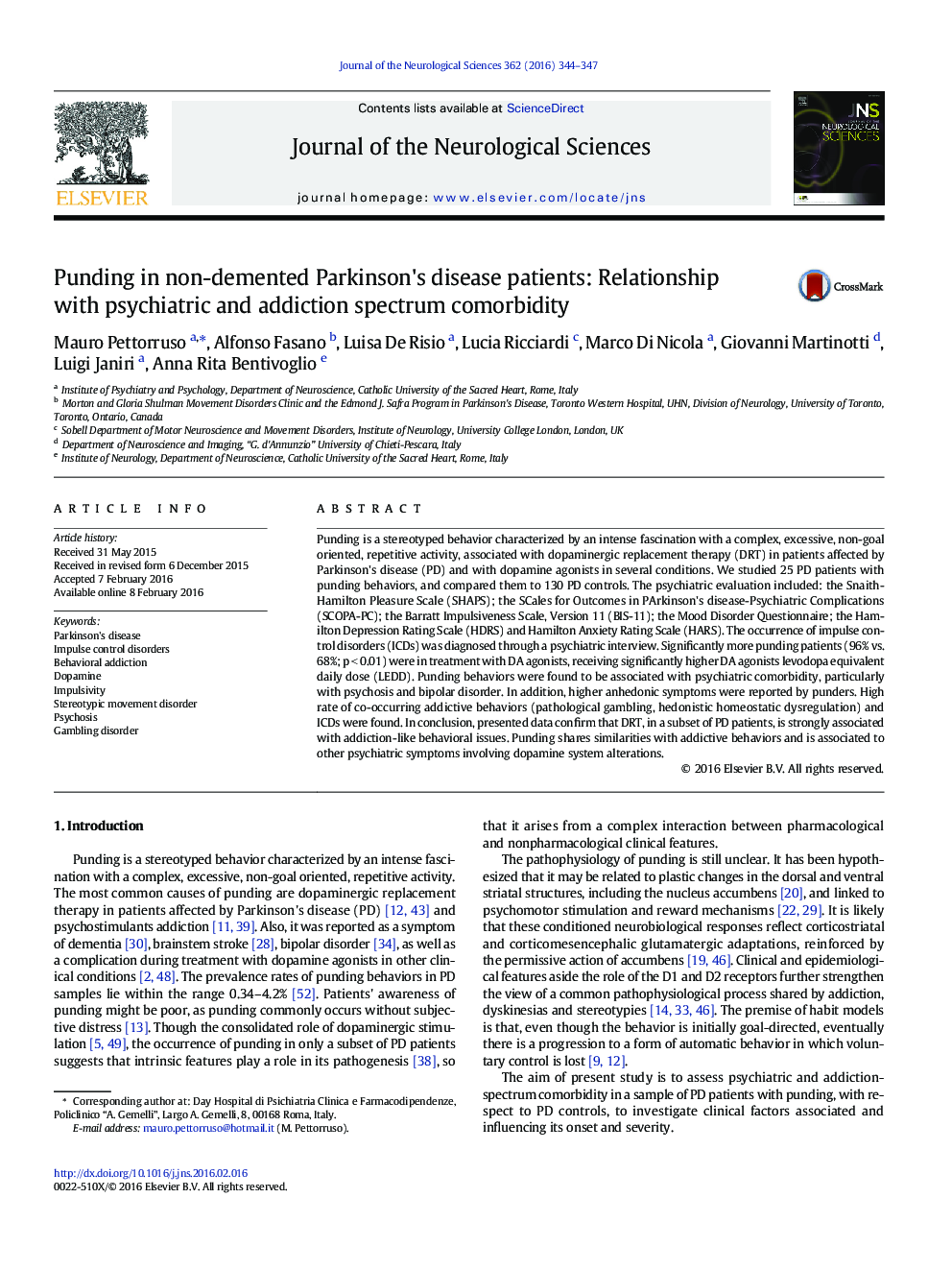| کد مقاله | کد نشریه | سال انتشار | مقاله انگلیسی | نسخه تمام متن |
|---|---|---|---|---|
| 1913078 | 1535100 | 2016 | 4 صفحه PDF | دانلود رایگان |
• Punding is a stereotyped behavior caused by dopaminergic replacement therapy in patients affected by Parkinson's disease.
• Punding behaviors were associated with psychiatric comorbidity (i.e. psychosis, bipolar disorder) and with addictive behaviors
• The study confirms the notion that in a subset of PD patients, DRT is strongly associated with addiction-spectrum disorders.
• Punding shares similarities with addictive behaviors and it could be a model to investigate the pathophysiology of addiction.
Punding is a stereotyped behavior characterized by an intense fascination with a complex, excessive, non-goal oriented, repetitive activity, associated with dopaminergic replacement therapy (DRT) in patients affected by Parkinson's disease (PD) and with dopamine agonists in several conditions. We studied 25 PD patients with punding behaviors, and compared them to 130 PD controls. The psychiatric evaluation included: the Snaith-Hamilton Pleasure Scale (SHAPS); the SCales for Outcomes in PArkinson's disease-Psychiatric Complications (SCOPA-PC); the Barratt Impulsiveness Scale, Version 11 (BIS-11); the Mood Disorder Questionnaire; the Hamilton Depression Rating Scale (HDRS) and Hamilton Anxiety Rating Scale (HARS). The occurrence of impulse control disorders (ICDs) was diagnosed through a psychiatric interview. Significantly more punding patients (96% vs. 68%; p < 0.01) were in treatment with DA agonists, receiving significantly higher DA agonists levodopa equivalent daily dose (LEDD). Punding behaviors were found to be associated with psychiatric comorbidity, particularly with psychosis and bipolar disorder. In addition, higher anhedonic symptoms were reported by punders. High rate of co-occurring addictive behaviors (pathological gambling, hedonistic homeostatic dysregulation) and ICDs were found. In conclusion, presented data confirm that DRT, in a subset of PD patients, is strongly associated with addiction-like behavioral issues. Punding shares similarities with addictive behaviors and is associated to other psychiatric symptoms involving dopamine system alterations.
Journal: Journal of the Neurological Sciences - Volume 362, 15 March 2016, Pages 344–347
